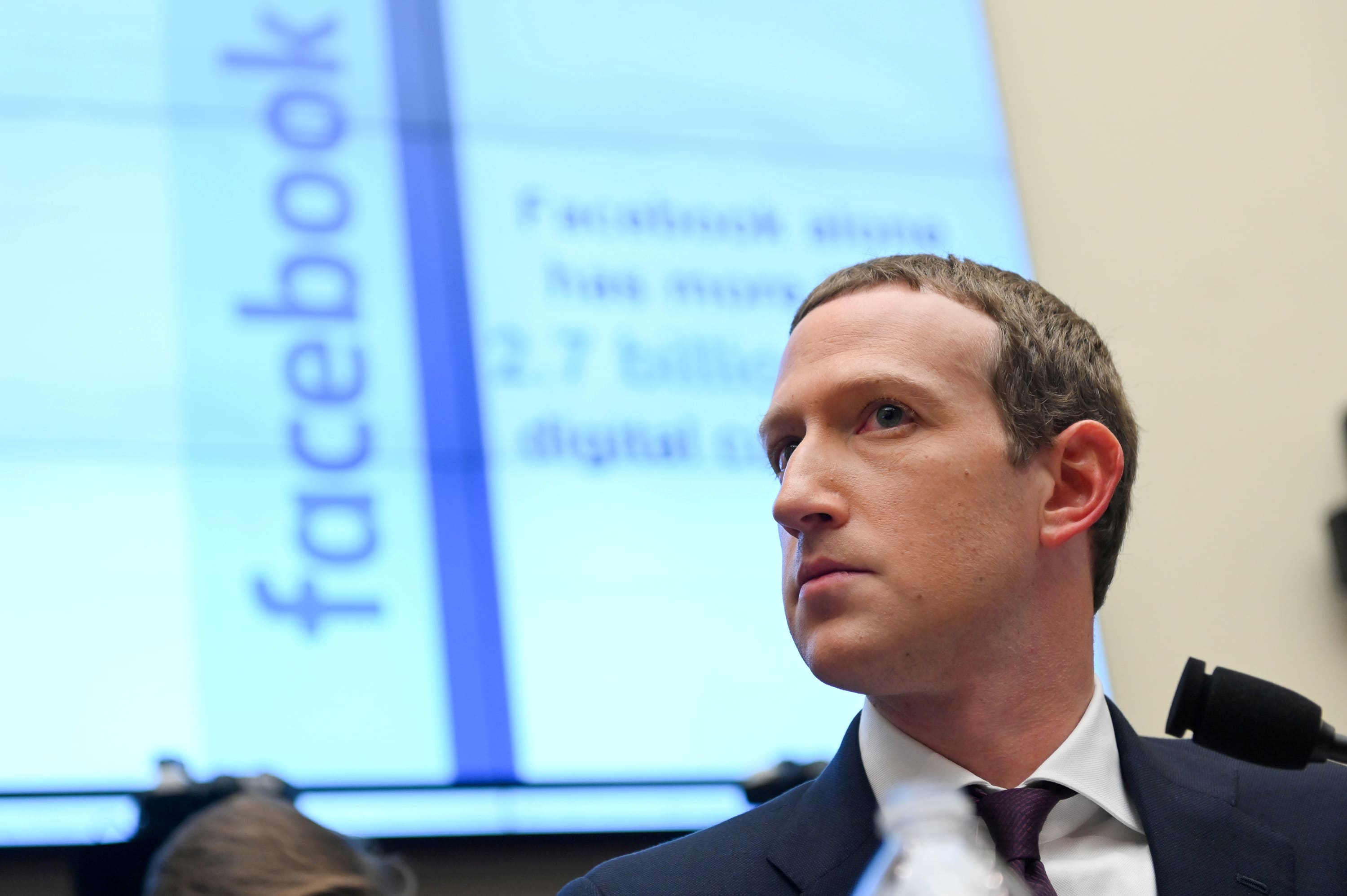Facebook, Twitter make editorial decisions to limit distribution of story claiming to show ‘smoking gun’ emails related to Biden and his son

Facebook Chairman and CEO Mark Zuckerberg testifies at a House Financial Services Committee hearing in Washington, U.S., October 23, 2019.
Erin Scott | Reuters
Facebook and Twitter on Wednesday limited the distribution of a New York Post story that claims to show “smoking gun” emails related to Democratic presidential nominee Joe Biden and his son.
“While I will intentionally not link to the New York Post, I want be clear that this story is eligible to be fact checked by Facebook’s third-party fact checking partners,” tweeted Andy Stone, a spokesman for Facebook. “In the meantime, we are reducing its distribution on our platform.”
Andrew Bates, spokesman for the Biden campaign, responded to the New York Post’s story in a statement.
“Investigations by the press, during impeachment, and even by two Republican-led Senate committees whose work was decried as ‘not legitimate’ and political by a GOP colleague have all reached the same conclusion: that Joe Biden carried out official U.S. policy toward Ukraine and engaged in no wrongdoing. Trump Administration officials have attested to these facts under oath.
The New York Post never asked the Biden campaign about the critical elements of this story. They certainly never raised that Rudy Giuliani — whose discredited conspiracy theories and alliance with figures connected to Russian intelligence have been widely reported — claimed to have such materials.
Moreover, we have reviewed Joe Biden’s official schedules from the time and no meeting, as alleged by the New York Post, ever took place,” Bates said in his statement.
The editorial decision to reduce the spread of the story is a significant one for Facebook. The social media company has long professed to stand for freedom of speech and rejected the idea that it be an arbiter of truth.
But the company has pulled a 180 recently, banning numerous types of problematic content on its services, including anti-vaccination ads, Holocaust denial, and pages and groups espousing the QAnon conspiracy theory.
Twitter blocked the story later on Wednesday. It decided to limit the spread of the article due to the lack of authoritative reporting around the origins of the information in it, a spokeswoman for the company said.
Specifically, the article was found in violation of Twitter’s Hacked Material Policy, which doesn’t “permit the use of our services to directly distribute content obtained through hacking that contains private information, may put people in physical harm or danger, or contains trade secrets.”